The best writing in games in 2018
Game writers and designers highlight their favorite writing of the year.
Videogames are full of many things: Guns, knives, ventilation shafts, castle sewers and mushrooms you can jump on. More than anything, they're full of words. Words that tell you where to go and what to do, words that create characters and drama, words that bring wholly imagined worlds into being. To celebrate the best words in videogames this year, I decided to turn to the people who write them. I asked a whole bunch of videogame writers to tell me about their favorite story this year, and to also pick out a particular bit of writing to highlight: a singular story moment, or dialogue, or bit of flavor text that suck with them long after the game was over.
Here's what they had to say. For more on the best writing in games this year, check out our Best Story GOTY award for The Red Strings Club and our feature on the brilliant localization of Dragon Quest 11.

Pillars of Eternity 2: Deadfire
Best writing: I'm going to cheat a bit and talk about a game I helped write: Pillars of Eternity 2: Deadfire. In the interest of objectivity, I'm not bringing up any of my contributions.
So we have these characters called "sidekicks." They're companions you pick up along the way who don't get the full "companion treatment" of personal quests, deeper relationships, or emotional arcs. That said, sidekicks are more than just fighting mannequins—they get their own unique voices, personalities, and in some cases intellectual growth. My colleague Kate Dollarhyde wrote the sidekick Rekke, who the player discovers shipwrecked, having sailed from a distant land. He speaks Seki, a mysterious language Kate painstakingly invented, and over time Rekke learns to communicate with the player and share his story.
What I think works about Rekke is that his origins are so far removed from the context of the game that he approaches the plot as a stranger squinting at the unusual locals. While all of the other characters bicker over political alliances, cultural struggle, and religious tension, it's refreshing to have Rekke observing from the sidelines and taking it all in with a sense of lighthearted bemusement. He's a breath of fresh air when intrigue and annihilation get a little too overwhelming. It also helps that he's perfectly charming. — Paul Kirsch
Best writing: Hands-down, it's the "Nemnok the Destroyer" quest from Pillars of Eternity 2. You're trying to rescue this kid from a cult whose members worship this giant demon, Nemnok—and, frankly, Nemnok's kind of a dick. Turns out he's just an imp with a giant ego under a giant-making spell, and once you defeat him you can take him along with you as a loud-mouthed pet for the rest of your playthrough.
I don't know if I would have enjoyed the rest of the game half as much without Nemnok shouting put-downs with poor grammar at me from my pocket (and occasionally trying to pick up my crewmates). He's an adorable little asshole and I would die for him. Sometimes when I'm sitting at home I'll find myself quietly chanting "Nem-nok! Nem-nok! Nem-nok!" I think... I think I'm part of his cult? — Sam Maggs
The biggest gaming news, reviews and hardware deals
Keep up to date with the most important stories and the best deals, as picked by the PC Gamer team.
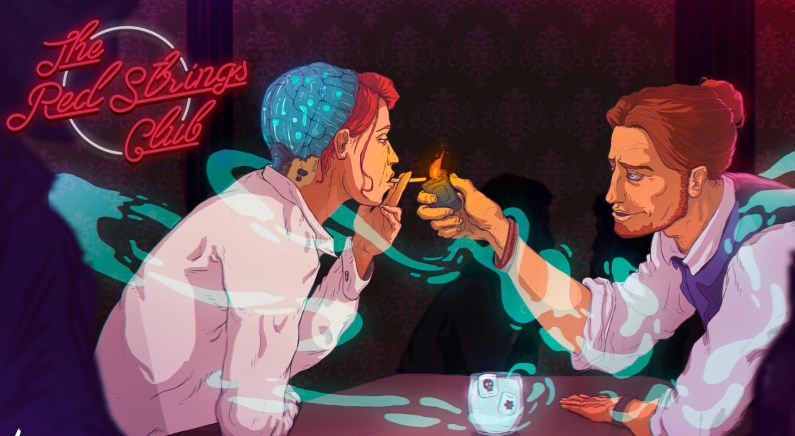
The Red Strings Club
Best writing: This year I greatly enjoyed playing The Red Strings Club, a cyberpunk noir adventure game revolving around brain implants that can alter your mood, morality and sense of self. I feel that these kinds of games often disappoint when it comes to asking the hard questions about free will, identity, personal politics, and what doing the right thing is, in a context where everyone is manipulated at one degree or another. But "Red Strings Club" didn’t shy away, and includes many thoughtful dialogues where there is no right or wrong answer.
One dialogue in particular stuck with me: if you could alter everyone’s mind, of course you wouldn’t do it; you'd know it’s wrong. But what if you could at least prevent people from committing suicide? What if you could prevent depression, or say, racism, without changing anything else in people’s personalities? Would you do it? This branching dialogue with a clever, non-judging AI was so well crafted and interesting, it turned the whole game into some kind of philosophical experiment that had me think really hard—and reloading a saved game many times. — Sachka Duval
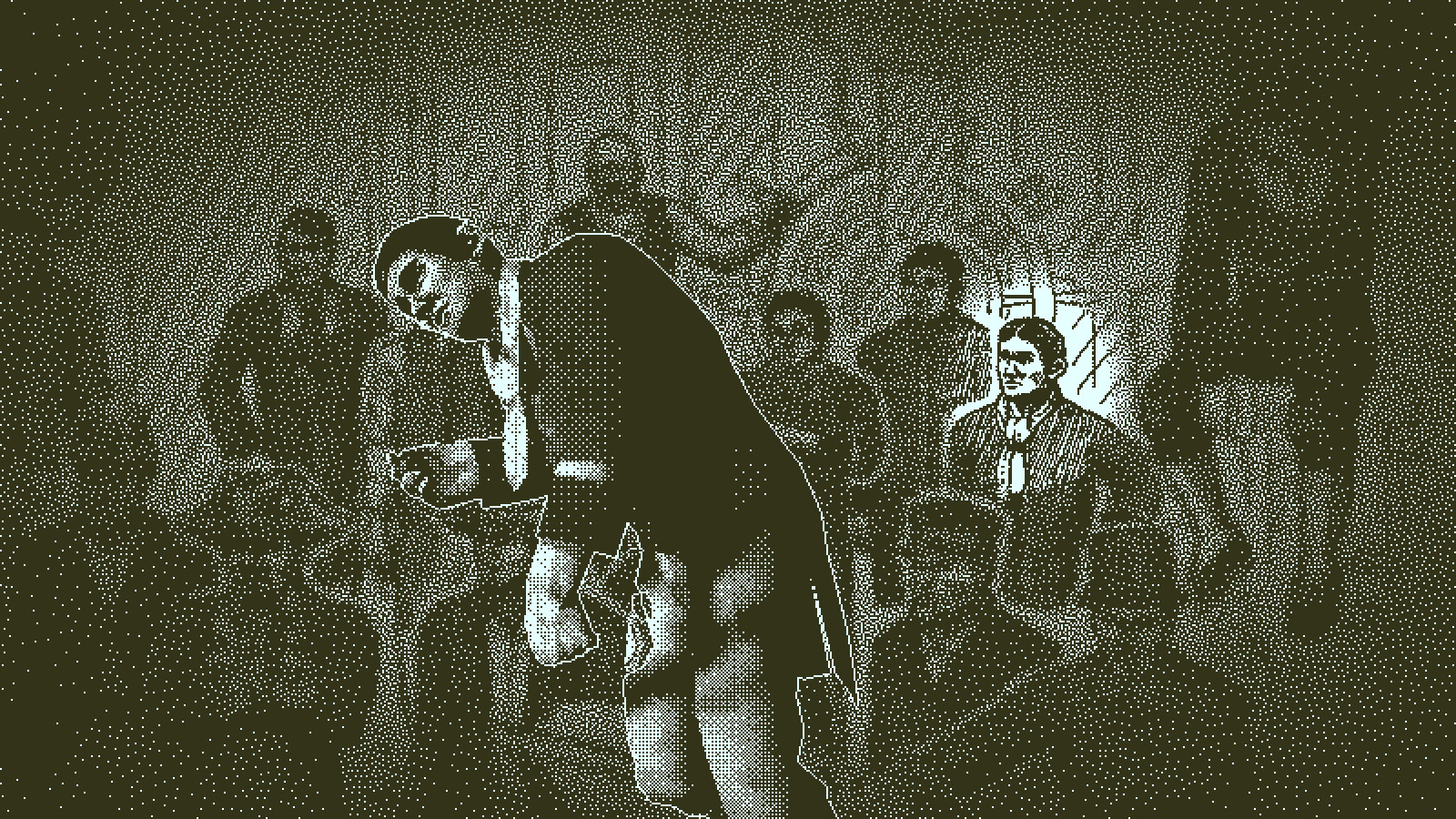
The Return of the Obra Dinn
Favorite story: A friend of mine who was a history student once explained to me how he was using old insurance papers and last wills to figure out how common people were living a couple of centuries ago. Just a list of personal items could reveal many secrets, even though he knew that it was barely a shadow of what these men and women were really like. I thought of that conversation again while reaching the ending of The Return of the Obra Dinn. The player is an insurance inspector, and after investigating the fantastic events that happened to the crew on that doomed ship, which involve all sorts of otherworldly creatures and gruesome deaths, she simply files a report: a list of names, causes of death, brief accolades and the estimated value of their personal possessions. The rest, as unique as it was, will be forgotten.
I loved how each individual story is mostly left to the imagination, and in the end only amounts to an insurance assessment. But the player has seen what was hidden underneath those few lines and numbers—the bravery, passion, treachery, cowardice, love... That’s the beauty of it: the mundanity which remains as sole testimony of the turmoil of life. Interestingly this was also true of Lucas Pope’s Papers Please, where entire lives and fates were contained in a few ID papers, for the player to judge. In both games I saw a bittersweet homage to the multitude of fleeting anonymous stories that is humankind. — Sachka Duval
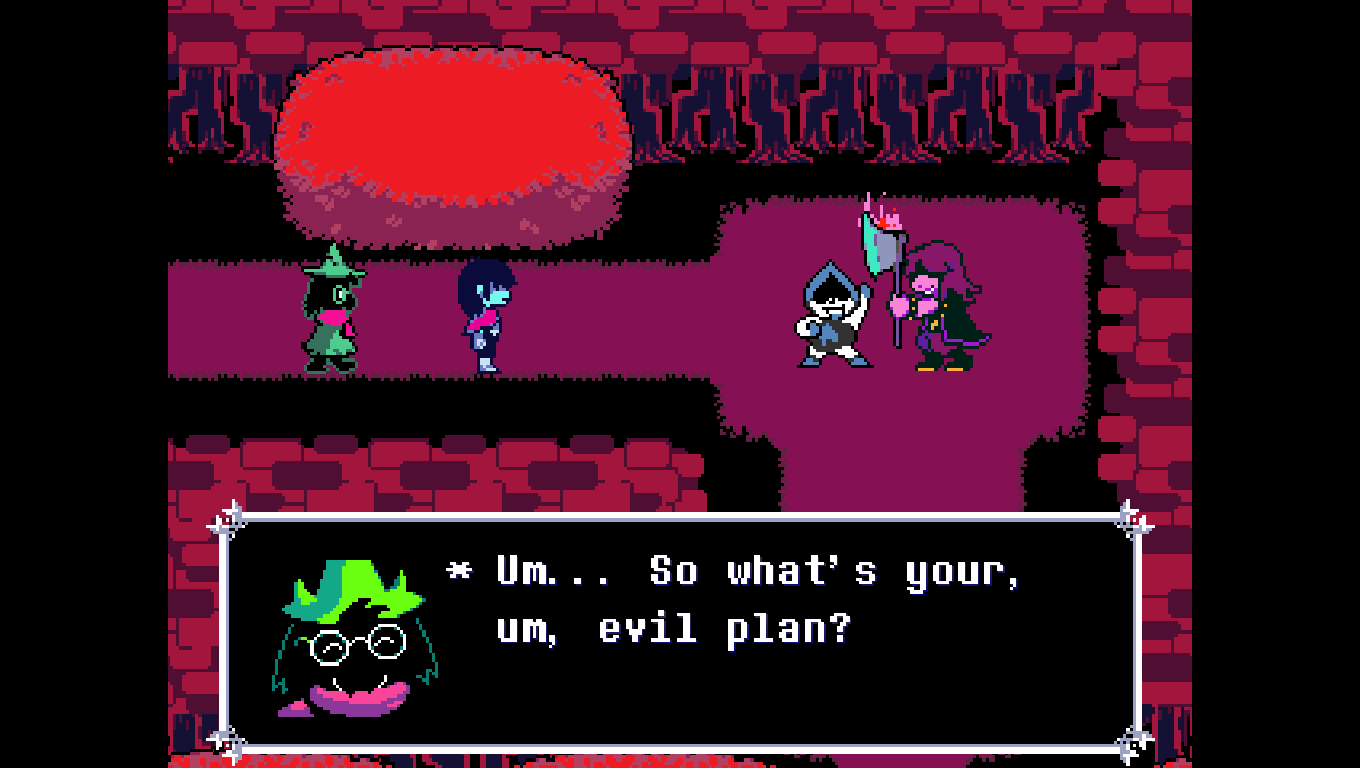
Deltarune
Favorite story: While its story is just getting started, Deltrarune, the surprise follow-up to 2015’s Undertale, is probably the one that struck me the most of all the PC games I played this year. Creator Toby Fox has a unique knack for tone-setting, and a quirky, confident personal style that won me over in Undertale, especially as I approached its spectacular finale. Deltarune carries that spirit forward in an unmistakable way. It starts off even stronger than Undertale did, deftly introducing a humorous and heartfelt cast of characters I want to learn more about whenever the rest of the game unfolds. The highlight is Susie, a big, scruffy, scary misunderstood loner/bully who won me over almost instantly.
Undertale was a wonderfully unique game, and from what I played of Deltarune, it looks as though Toby Fox and his collaborators are well on their way to creating a worth successor with lots more surprises in store. I would say ‘I can’t wait', but it’s really the opposite—I can and will. I’m happy to wait as long as it takes for something like this to be fully realized. — Greg Kasavin
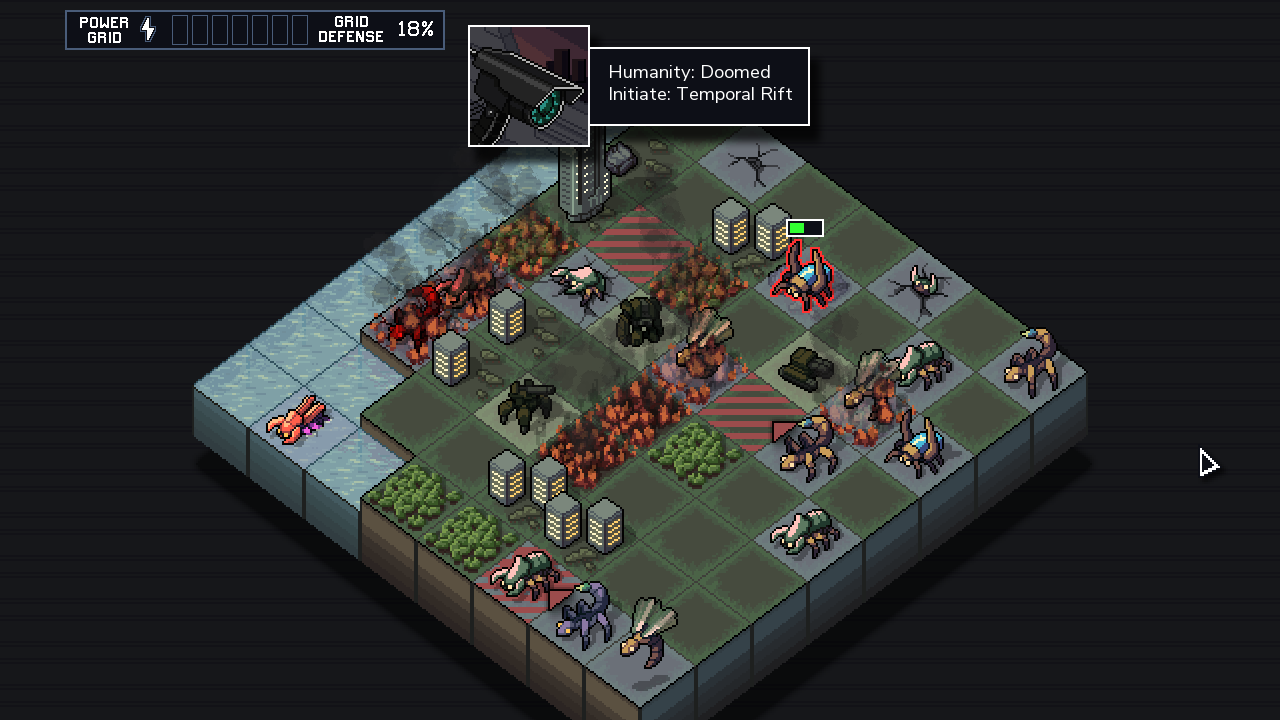
Into the Breach
Best writing: A bit of writing that most stood out to me in a PC game this year comes from Into the Breach, the outstanding and elegantly crafted turn-based strategy game from the creators of FTL: Faster Than Light. Into the Breach presents a grand conflict on a very small-looking scale; using little grid-based battlefields, the game expects you to believe that the entire world is under siege by an alien menace. And it’s completely convincing at this, thanks partly to little snippets of dialogue attributed to the buildings your squad of mechs is charged with protecting.
My favorite, most efficient little bit of this type of writing in the game is a two-word sentence: “Dad, look!"
I just love everything about this when it appears in the context of the game. You see it pop up from time to time near a tiny little pixel building. Then, all of a sudden, you are reminded it’s a building full of innocent people you have to protect, who are putting all their faith in you. They give the game an emotional weight and a sense of place to accompany its terrific design. For me, these snippets of flavor text from Into the Breach did a ton of work in making the conflict in the game feel more real and personal. — Greg Kasavin
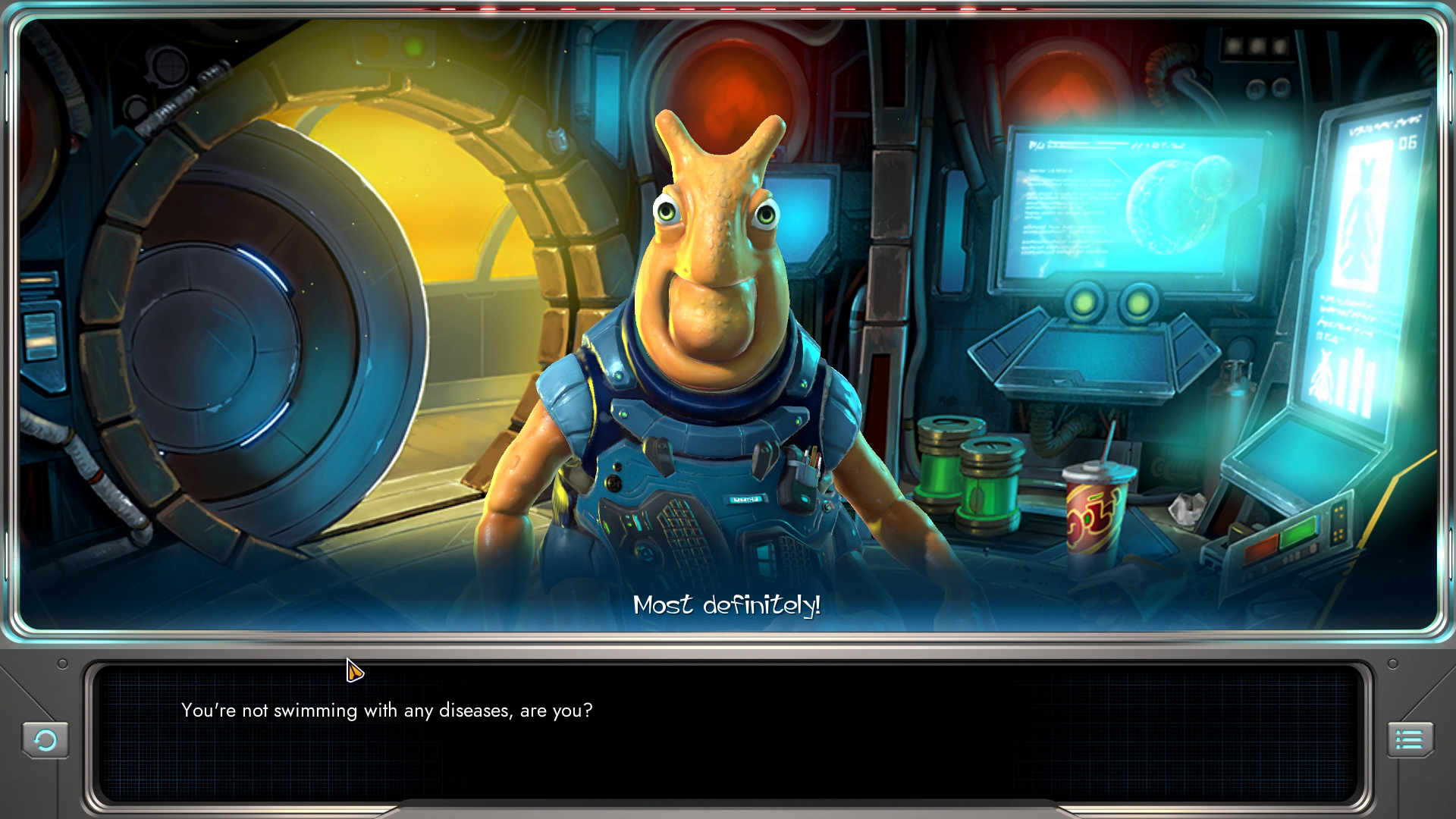
Star Control: Origins
Favorite story: I’m going to highlight Star Control: Origins, because while I definitely have issues with some of the mechanics, the script is wonderful. Star Control 2 is a tough game to live up to, with some of the best and most memorable aliens in the business. Just look at Star Control 3. But Origins pulls it off, whether by punishing you for running out of fuel by making you listen to Star Trek fan-fiction, or the increasing frustration of Earth as you keep bringing interstellar weirdos back home.
There are better stories in terms of overall plot and twists and all that jazz, but I can’t think of a game I smiled and laughed as much at in 2018 and damn it, that’s worthy of a mention in my book. — Richard Cobbett
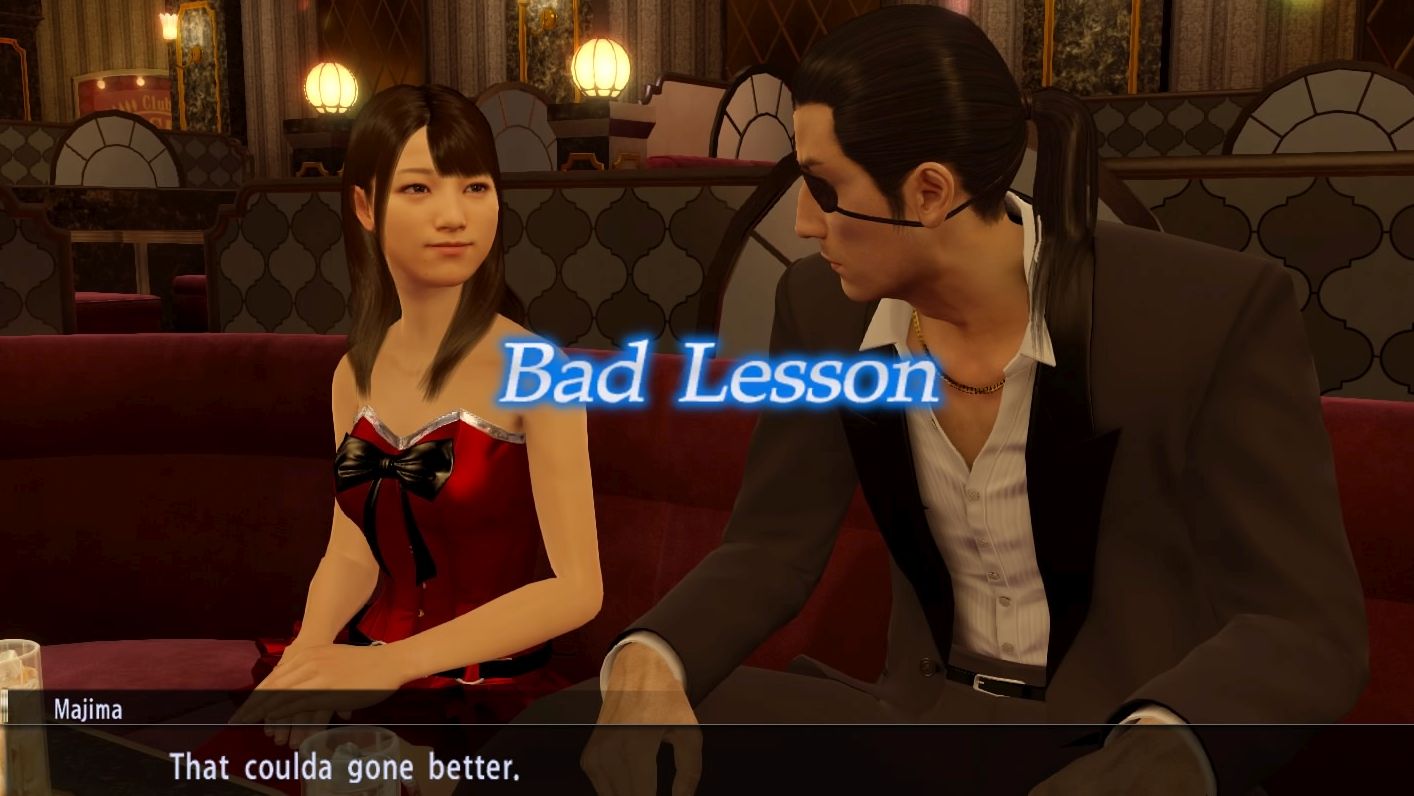
Yakuza 0
Best writing: I’m cheating a bit because technically I played it before this year, but I’m not about to give up a chance to spread the word of Yakuza. I adore this series, and Yakuza 0 is arguably the best of it. In particular, I want to highlight the localisation team. It’s often overlooked, but you play games like this or Phoenix Wright or the Mario RPGs and the contribution of localisation can’t be overstated. Yakuza is a masterpiece of the form, balancing the gritty crime story at its core and the utter insanity of all the side-quests around it, while leaning into the cultural side of its twin cities, Kamurocho and Sotonboi, in a way that feels both like visiting a foreign country and being completely at home.
That said, weirdly, the big moment that springs to mind isn’t one of the big dramatic showdowns, or jokey encounter for series lead Kiryu and newly playable Majima to play the ultimate straight-men against, but a single line in a quest to—no kidding—buy porn for a curious child, despite being so embarrassed that avoiding the eyes of people in the area immediately turns it into a stealth mission. "Begin your dubious quest!" it declares. If only all RPGs were so honest. — Richard Cobbett
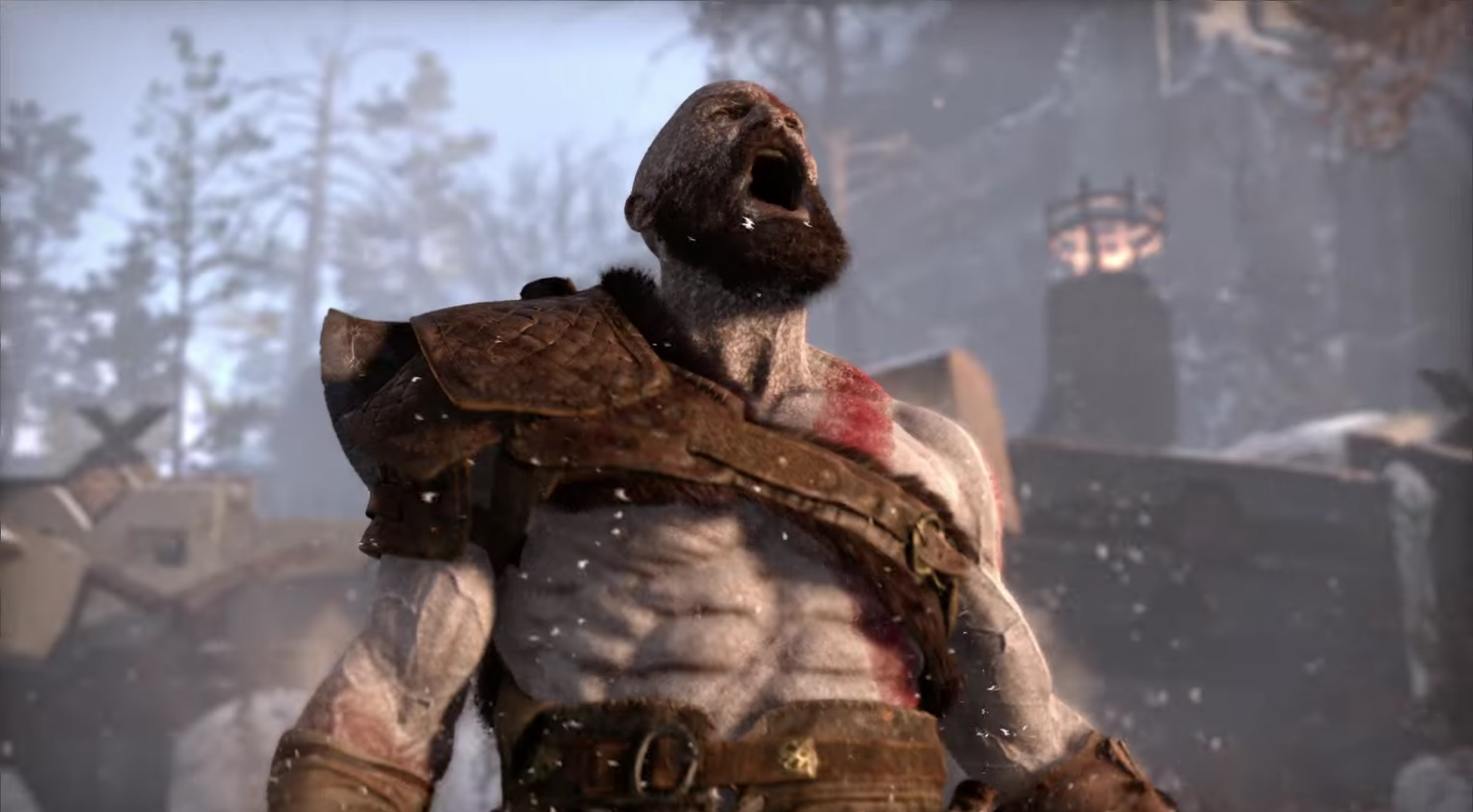
Honorable (console) mentions: Spider-Man and God of War
Favorite story, Spider-Man: I can say this because I only worked on the DLC, but it has to be the Spider-Man PS4 golden path. Not only did the team manage to craft a story that felt like you were playing through a Marvel movie, but the characters and their stories also hit me in the feels in a way that few super hero films ever have. Focusing on an adult Peter and his relationships—with MJ, with his aunt, with Otto, with his own powers—connected me to Spider-Man on a real, (super) human level. They absolutely knocked it out of the park. — Sam Maggs
Favorite story, Spider-Man: My favorite game of the year, hands down, was Insomniac’s Spider-Man. Not because of the sensational score, ultimate cast, or spectacular swinging, but because of Peter Parker and his amazing friends. It’s the rare triple-A game that understands a protagonist is more than just a cool set of powers. Insomniac understands that radioactive blood might make you a hero, but it’s the people in your life that make you super.
By opening the gameplay to multiple characters, including Miles Morale and Mary Jane Watson, Insomniac showed us the heart of Spider-Man. Not only that, they allowed us to see the villains as three-dimensional characters capable of good, but unable to overcome their darker natures. But most importantly, it allowed me to sweep up garbage at a homeless shelter. The game didn’t tell me to, nor did it reward me—not even so much as a Trophy. It just let me do it, because that’s what Peter Parker would do. — Walt Williams
Favorite story, God of War: Full disclosure, I worked with Richard Gaubert on a game at Sony that was cancelled. So we're friends. I know he's a father and how important that is to him and how that influenced his writing of God of War.
I don’t always play the latest games when they come out. I sometimes don’t get to them until a year after they’ve been released. I haven’t played Red Dead Redemption 2 yet and I was a huge fan of the first, but in terms of the newer games I’ve played this year, I thought God of War had a wonderful narrative. The dialogue is sharp and emotional and the voice acting is fantastic. Kratos and his son, Atreus, have a touching and troubled and realistic relationship. Kratos lost his wife and Atreus, his mother, and she was their primary connection. With her gone, they now have to forge a new kind of relationship. Atreus wants his father’s love and support, but fears him and doesn’t understand him as he was never around much.
Kratos is not one to express his feelings and the emotional armor he wears to protect himself creates the conflict that fuels so much of their relationship. Richard Gaubert, Matt Sophos, and Cory Barlog did a great job of creating characters the player can connect with and a deep and believable father and son relationship. It’s always better if gameplay can mirror the emotional and narrative aspects of the story and in God of War that’s exactly what they did. Father and son must work together to succeed and for that to happen, they must come together. I’m a sucker for father and son stories. (I loved Field of Dreams.) So God of War really connected with me.
I don’t want to spoil anything, so I will be as vague as I can be about my favorite moment. (But this is a minor spoiler.)When Atreus falls ill, the pain and fear Kratos feels is palpable and what he must do to save him is epic and emotional. I believe the number one job of a game writer is to create an emotional context that drives the game play. You have to make the player care and God of War made me care. — Haris Orkin

Wes has been covering games and hardware for more than 10 years, first at tech sites like The Wirecutter and Tested before joining the PC Gamer team in 2014. Wes plays a little bit of everything, but he'll always jump at the chance to cover emulation and Japanese games.
When he's not obsessively optimizing and re-optimizing a tangle of conveyor belts in Satisfactory (it's really becoming a problem), he's probably playing a 20-year-old Final Fantasy or some opaque ASCII roguelike. With a focus on writing and editing features, he seeks out personal stories and in-depth histories from the corners of PC gaming and its niche communities. 50% pizza by volume (deep dish, to be specific).

